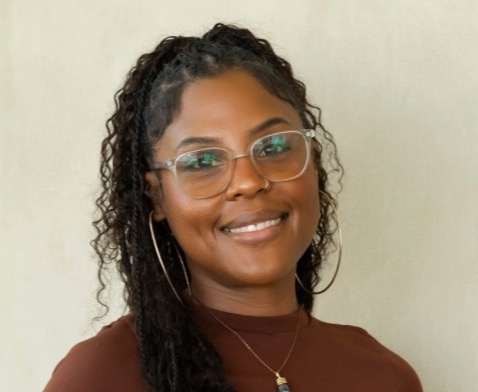TRAUMA THERAPY IN LAFAYETTE, LOUISIANA THAT HONORS THE NERVOUS SYSTEM
At KDH Counseling, trauma therapy is grounded in the understanding that trauma lives not just in memory, but in the nervous system. Trauma responses are not signs of weakness — they are adaptive survival responses shaped by overwhelming experiences, chronic stress, or repeated exposure to threat.
Our clinicians provide trauma-informed therapy for children, teens, and adults, supporting individuals who experience PTSD, developmental trauma, medical trauma, relational trauma, and other trauma-related patterns.
WHAT TRAUMA AND PTSD CAN LOOK LIKE
Trauma does not always result from a single catastrophic event. For many people, trauma develops through repeated experiences of fear, helplessness, neglect, or emotional overwhelm. These experiences can shape how the nervous system responds long after the danger has passed.
Trauma-related symptoms may include hypervigilance, emotional numbness, intrusive memories, dissociation, sleep disruption, difficulty trusting others, or a persistent sense of being “on edge” or unsafe.
-
TRAUMA THERAPY IS NOT ABOUT RELIVING THE PAST
A common concern about trauma therapy is the fear of being pushed to relive painful memories. Effective trauma-informed therapy does not require retelling every detail of what happened.
Instead, treatment focuses on restoring a sense of safety, increasing nervous system regulation, and helping the body and brain recognize that the threat has passed.
-
TRAUMA THERAPY FOR ADULTS, TEENS, AND CHILDREN
Trauma can affect individuals at every stage of life. Our therapists adapt trauma therapy to developmental needs, family systems, and lived context.
For children and teens, treatment may involve caregivers and focus on safety, regulation, and emotional expression. For adults, therapy often centers on patterns shaped by trauma that continue to affect relationships, work, and self-perception.
-
WHNE TRAUMA OVERLAPS WITH ANXIETY, OCD, OR NEURODIVERGENCE
Trauma frequently overlaps with anxiety disorders, OCD, ADHD, and neurodivergent experiences. These overlaps can complicate diagnosis and treatment if not carefully considered.
Our clinicians are experienced in working at these intersections, ensuring that trauma therapy does not inadvertently reinforce avoidance, compulsive coping, or masking.
-
MEDICATION AND TRAUMA TREATMENT
For some individuals, medication may be a supportive component of trauma treatment, particularly when symptoms such as sleep disruption, panic, or severe hyperarousal interfere with daily functioning.
Medication is never positioned as a replacement for trauma therapy, and decisions are made collaboratively based on individual needs and goals.
TRAUMA THERAPY APPROACHES WE USE:
Trauma therapy emphasizes choice, pacing, collaboration, and respect for each person’s capacity. Our clinicians draw from evidence-based approaches like EMDR, DBR, and Brainspotting for trauma reprocessing and trauma informed approaches like DBT that support nervous system regulation and integration rather than overwhelm.
Approaches are always tailored to the individual rather than applied as a one-size-fits-all protocol.
EMDR THERAPISTS & TRAUMA THERAPISTS IN LAFAYETTE, LA
Real people. Specialized training. Collaborative care
Trauma can shape how people relate to themselves and the world, often without conscious awareness. Trauma therapy offers a path toward increased safety, flexibility, and choice — allowing the nervous system to move out of survival mode and into connection and agency.
If you’re considering trauma therapy, our team is here to support you with care that is paced, respectful, and grounded in evidence-based practice.

KD HOLMES, MS, LPC, EMDR CERTIFIED, BTTI TRAINED
K.D. works with OCD, Anxiety, Phobias, Panic Disorder, perfectionism, overachieving, PTSD and CPTSD. She is EMDR Certified, DBR trained in all 3 levels, and infuses Trauma -Informed Therapy, ERP, and DBT.

ISLA TURNER, MS, LPC, EMDR TRAINED, BTTI TRAINED
Isla works with adolescents, adults and families with trauma, depression, anxiety, OCD, phobias, communication, perfectionism and self-esteem. She uses DBT, CBT, RECBT, EMDR, ERP, and Trauma-Informed Therapy.

BRENT NICOLINI, MS, LPC, LAC, EMDR TRAINED
Brent works with adults ages 18 and up struggling with substance abuse, anxiety, depression, codependency, and trauma using behavioral techniques, EMDR, and Brainspotting.

ALLISON BULLER, PHD, LPC, NCC
Allison works with teens and adults struggling with Depression, Anxiety, and Trauma. She is a DBT therapist, and does Motivational Interviewing, and Mindfulness Based Cognitive Therapy.

LISA LAROCHELLE, MSW, LCSW-BACS
Lisa works with children ages 4 and up, with anxiety, depression, and trauma using Play Therapy and directive behavior modification. She has training in Preschool and Youth PTSD Treatment, and ACE Educator (Adverse Childhood Experiences).

MALLORY GOTHE, MS, PLPC, EMDR TRAINED
Mallory works with ages 12 through adults, with depression, anxiety, suicide, grief and loss, parent-child relationships issues, complex trauma, identity exploration, LGBTQIA+ advocacy. She is trained in EMDR and integrates somatic modalities with talk therapy.
Fees, Insurance,
& Scheduling
Certain counselors exclusively accept private pay, while others are credentialed with United Health Care, UMR, and Blue Cross Blue Shield Private Insurance Plans. HSA/FSA accepted.
Please note, Medicaid is not accepted here.
FREQUENTLY ASKED QUESTIONS
EMDR follows a structured protocol with bilateral stimulation. DBR gently tracks orienting tension and the deep sequence around shock/attachment pain. Brainspotting uses fixed eye positions to access and process subcortical activation.
Each approach is effective, so your therapist will use the methods they are trained in.
Our pacing is collaborative. We’ll build stabilization skills first and titrate exposure so you stay within your window of tolerance. DBT skills are perfect for stabilization.
Yes—our in‑house medical provider can evaluate and prescribe when appropriate, coordinating with your therapist.
Yes, for eligible Louisiana residents. We adapt methods (e.g., remote bilateral stimulation, resourcing) for online sessions.
BIOLOGY OF THE BRAIN & MENTAL HEALTH
KD Holmes, MS, LPC, EMDR Certified and Whitney Storey, MS, LPC delve into the world of the brain, and how a deeper understanding of its biological workings can provide invaluable insights into anxiety and mental health.
3 min read
EMDR, What is it?
Mar 2, 2023 by Isla Turner, MS, LPC
